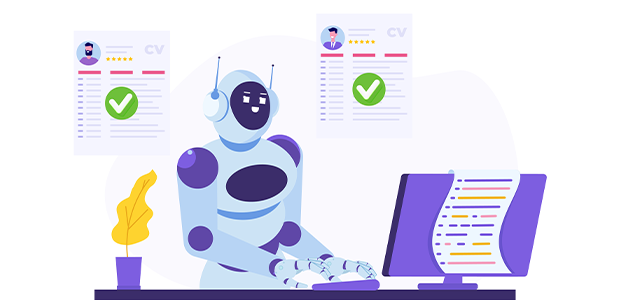
How GenAI can aid inclusive hiring practices
AI-driven recruitment tools have transformed the way employers can discover new talent. But there’s a problem. Employers and candidates alike have sparked concerns about inherent bias contained in some tech-enabled recruitment systems.
People have seen their CVs rejected simply based on their name, gender, age – even on what hobbies they like.
Without proper safeguards and training, AI-driven recruitment tools risk perpetuating these biases, especially as more companies choose to implement them in hiring processes. However, when thoughtfully built and managed, Generative AI (GenAI) can be a powerful tool in recruitment and help pave the way for an equal workforce. And startups are in the enviable position of being able to build diverse teams and inclusive cultures from the ground up.
With Gartner predicting that AI-enabled candidate sourcing is expected to grow in importance the most over the next two years, it’s important that it is being used in the best way to provide a well-rounded and positive hiring process.
Bias detection and training
Talent discovery starts with the job you’re hiring for and many job descriptions fall into the trap of biases from the beginning. The use of AI should begin from the job description phase – refining them based on real-time data and market benchmarks, and training hiring teams to recognise and mitigate biases.
Then when it comes to the applications themselves, rather than using a traditional screening method that reveals personal information such as a candidate's name, gender, or background, blind screening powered by GenAI ensures decision-making is focused exclusively on the applicant's skills, experience and qualifications. This prevents personal attributes from influencing outcomes.
AI applies structured, consistent, transparent criteria for skill-based evaluations, eliminating subjective judgments and biases, resulting in fairer hiring decisions.
This offers reassurance to candidates that their application will be judged purely on merit. It also sets an example of the inclusive nature of the company that they are applying to work for.
Similarly, recruiters can focus on a candidate's true capabilities and the skills that are crucial to the honed job description. In doing so, there is less of a risk of unconscious bias influencing decision-making.
In the long-term, this can help companies to build diverse teams that reflect their commitment to inclusion. A startup can then position itself as one that reflects equality from the very beginning, strengthening its appeal to a future more diverse talent pool.
Tackling CV padding
Another issue that AI helps to overcome in the recruitment process, lies in the hands of applicants rather than recruiters – the rise of CV padding. Today’s job market is more competitive than ever, and many applicants are padding out CVs and cover letters using GenAI tools.
Recruiters now have plenty more applications to sift through, which are often not a true reflection of a candidates’ experience or qualifications. AI-generated applications often include exaggerated or fabricated claims. This is making it much tougher for recruiters to identify suitable candidates with genuine skills and credentials.
Specialised GenAI-powered solutions built for HR and recruiters are designed to address this issue head-on by cross-checking applications with public records – including academic databases, professional certifications and social media profiles.
This significantly saves time for recruiters – especially at startup companies where time is more limited – as they no longer have to manually carry out background checks that can be lengthy. Instead, a candidate's claims can be verified in real-time. Recruiters can benefit from the peace of mind that their final decisions are made based on factual information.
Identifying an inclusive talent pool
With diversity, equity and inclusion (DEI) being a top priority for many companies and startups especially, recruiters are becoming more conscious that every part of the business reflects these values. Equally, applicants are increasingly seeking out companies that genuinely reflect the values they set out for themselves.
AI-driven tools – which recruiters can customise and tailor to their needs – analyse historical company data to identify gaps in representation. In revealing patterns that might otherwise go unnoticed, these tools can aid recruiters in making intentional and inclusive decisions to address underrepresentation.
Not only does this ensure that the specific requirements of a role are fulfilled, but it also guarantees that decisions of who to recruit is made in alignment with company-wide DEI values.
The future of recruitment
GenAI-powered recruitment tools hold significant potential to pave the way for a more inclusive and efficient recruitment process. We are likely to see more hyper-personalised job descriptions and candidate assessments used to better hone in on a candidate’s skills and a company’s values. In the long-term, better matching applicants to jobs, employees are more likely to stay in their roles for longer – leading to lower turnover rates and a successful company culture.
With Boston Consulting Group reporting that a negative hiring experience causes 52% of job seekers to decline offers, it’s more important than ever that recruiters are taking part in responsible hiring practices and GenAI is ripe to support this.
As more and more companies choose to implement GenAI solutions into their recruitment processes, those who fail to capitalise on this opportunity may risk falling behind competitors or missing opportunities to achieve company-wide objectives.
For more startup news, check out the other articles on the website, and subscribe to the magazine for free. Listen to The Cereal Entrepreneur podcast for more interviews with entrepreneurs and big-hitters in the startup ecosystem.

